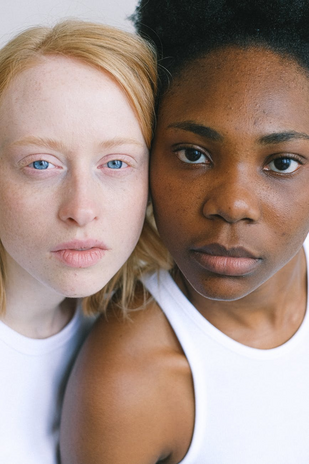May 25, 2020. The day of George Floyd’s murder. We speak of George Floyd’s murder as if police brutality is the only thing that killed him. Yes, that is the main component in his murder, however, I want to tell you something else that took part in killing him: colorism. On this day, an Arab man called the police on Mr. Floyd.
A little history that not a lot of people keep in mind is that the effects of British colonization in other countries still plays a huge role in today’s society. I’m not trying to bore you, so I’ll keep it short. The British not only took over the land and killed the native land’s people, but a type of brainwash also occurred to make different countries believe what they believe today. As you already know, the British believe skin fairness = beauty. They pushed this ideology onto all of the countries they invaded by allowing light-skinned people of color to get jobs instead of dark-skinned people. In Arab countries, there is an emphasis on considering pale skin beautiful. Many skin lightening products are sold in these places.
Countries like India were also brainwashed into believing that this type of ideology is correct. Long before Britain invaded, India was using its old four-fold caste system with the groups of Brahmins (priests and teachers), Kshatriyas (warriors and rulers), Vaishyas (farmers, traders, and merchants), and Shudras (laborers).
This type of government was flexible and allowed an individual to move from one group to another if they did not like their profession; it was never based on skin color. After the British colonization, this type of system was changed for the worse when the British only gave the top three group jobs to the light-skinned people. Ever since then, Indians, as well as Pakistanis and Bangladeshis after the partition, link light skin to beauty and purity and dark skin to unattractiveness and impurity. Indians, specifically, have kept this caste system and have correlated the higher caste members with people of lighter complexion and “lower” caste members with people of darker complexion. Because of this, there is constant discrimination to people of the “lower” caste. There was even a fifth “caste” added in which people of the higher castes call the “lowest” caste the “untouchables.” If you are a part of this caste, you are considered dirty and worthless. People of the “lower” castes face daily discrimination, especially for their dark skin color. Some even succumb to societal expectations and use skin lightening creams that are blatantly advertised everywhere to promote the light skin beauty standard.
People in other countries also enforce a similar mindset. For example, in many Latin countries such as Brazil and Mexico, there is a huge emphasis on choosing light-skinned actors to portray characters in movies and tv shows. Usually, if a dark-skinned actor is chosen, they are given a minimal role like a maid that yet again enforces the mindset that dark-skinned people are not meant to do more with their life than just labor work, which is just plain wrong.
Some more countries that experience this are countries like China and Japan, who most people would say already have fair skin. Chinese and Japanese culture correlates spirituality, attractiveness and capability with light skin. In the past hundreds of years, women from these two cultures would put on heavy powder and blush to resemble white women. In the countries of Africa such as Nigeria, Senegal, Mali, etc., many of these women are basically forced to use skin lightening creams to have better marriage prospects and better success.
Even in the US, light-skinned black Americans have more privilege than dark-skinned black Americans. In our country, there is a major emphasis on black culture. Many people appropriate black culture by tanning to look as dark as black people, saying the forbidden N-word, speaking in a blaccent and listening to rap music. We love black culture in America. Instead of appreciating it, we culturally appropriate it and make it seem as if black culture suits more to people who aren’t black. Non-black people will be so quick to say the N-word and rap the latest Kendrick Lamar song but won’t say anything when it’s time to stand up for black lives that are being murdered by the police. However, before you start pointing fingers at other people, make sure your own finger is clean. Are you doing what you can to stand up against the anti-black mindset in your culture? This is not just a black-white issue, it is an issue that all races and ethnicities are considered to be a part of. There is hatred for dark skin in many cultures and we have to change that by taking action and speaking up. Say something when your friends and family say negative things about someone’s skin color and/or someone’s race/ethnicity. You should definitely also sign petitions and donate, but please know: you can be an activist in your daily life. All you have to do is speak up and stand up when you hear something racist. Support black writers, teachers, doctors, businesspeople. Support black people. Black Lives Matter today, tomorrow and forever.
Links to Help
https://blacklivesmatters.carrd.co/
https://neaedjustice.org/black-lives-matter-school-resources/
https://time.com/5849721/how-to-help-black-lives-matter-protests/



